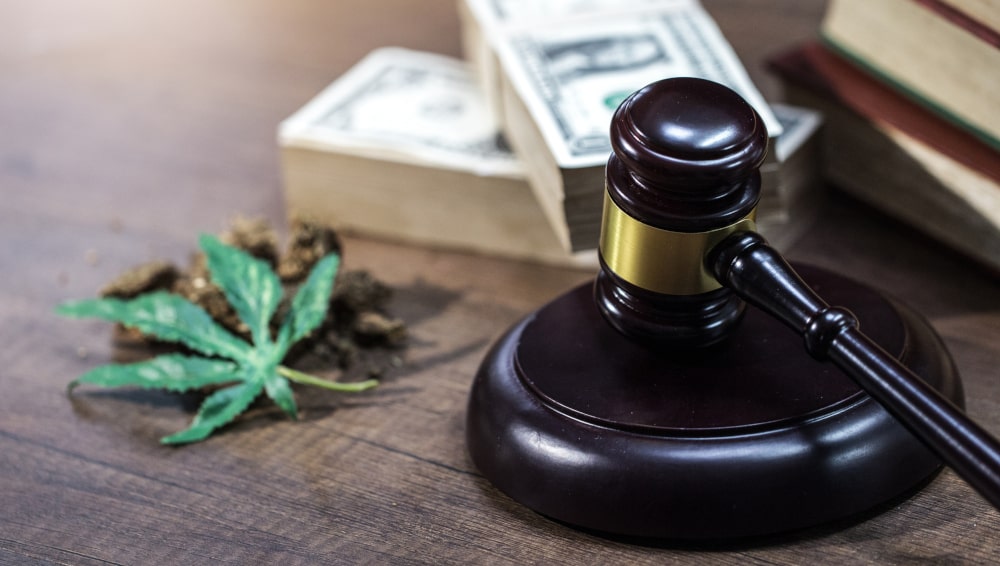
It is illegal to traffic or possess prohibited drugs or controlled substances in Canada as outlined under the Controlled Drugs and Substances Act (CDSA). While federal law broadly categorizes drug offences into drug possession and trafficking, there are other related charges, including possession with an intent to distribute, importing, and drug production or manufacturing.
Whether you are facing drug possession or drug trafficking charges, drug crimes are serious offences with severe penalties, including life imprisonment. However, for a successful conviction in Ontario, the Crown Attorneys or prosecutors must prove several things beyond a reasonable doubt.
The Subject Item is an Illegal Drug
In an Ontario drug case, the Crown Attorneys must first prove that the item in question is indeed an illegal drug classified under the CDSA. Typically, the prosecution needs to send the ‘drug’ to a certified analyst for forensic determination before accepting it as part of the evidence. The analyst will determine what the substance or item is.
In Canada, unless there is a medical exemption, it is illegal to possess cocaine, ecstasy, heroin, ketamine, or crystal meth, among other controlled substances. Accordingly, the prosecutor must prove that the subject item is among these prohibited drugs. It is not enough for the prosecution to say an item looks like an illegal substance; they must produce a drug certificate. Otherwise, the court will drop the drug charges.
Drug Possession
Besides proving that the item in question is a prohibited drug or a controlled substance, the prosecution must prove that the accused was in possession of the illegal drug. If the charges are for distribution or trafficking, the Crown must also show that the accused was in possession with an intent to distribute.
Generally, proving possession involves the Crown Attorneys showing that the accused individual knew that the item was an illegal drug or a controlled substance, and had some kind of control over the drug. In cases involving distribution charges, proving possession usually comes down to where the police found the drugs and whether other items on the scene indicated ongoing sales or distribution.
Knowledge of Possession
The prosecutor needs to show that the accused individual knowingly possessed the drugs. Typically, simply having an illegal drug on your person is insufficient to show actual drug possession, especially if there is uncertainty regarding the accused person’s knowledge of possession.
For instance, the accused individual may be wearing a borrowed piece of clothing where the owner had illegal drugs in the pockets but forgot to remove them. In such a case, the accused was unaware of the existence of the illegal drugs, and they are not guilty of possession unless the prosecutor can prove otherwise.
Similarly, an accused person can innocently possess an illicit substance or chemical. A driver can transport cocaine on an employer’s instructions while innocently thinking it is sugar. In such cases, the prosecutor must prove that the accused person knew the substance was illegal to establish possession. However, mistaking illegal drugs for other illicit substances is usually an inadmissible legal defence.
Control over the Illegal Drugs
Besides proving possession and establishing the accused person’s knowledge of the illegal drug, the Crown Attorneys need to prove that the individual had some kind of control over the drug. Typically, a person can be guilty of constructive possession where they have knowledge and control of the illegal drug even without actual possession.
In most cases, prosecutors can infer knowledge and control from seized evidence. For instance, where police seize illegal drugs found in a vehicle’s compartment, the Crown can infer from such evidence that the driver had knowledge and control over the drugs, even where they do not own the vehicle.
However, a passenger in the vehicle may be innocent of constructive possession, as they can rightly argue not having control of the vehicle or any knowledge or control over the illegal drugs. Much like the driver’s inferred control over the illicit substances in the vehicle, the Crown can infer knowledge and control over illegal drugs found inside a person’s room or luggage.
Manufacturing and Sales
While some people possess illegal drugs for personal use, others possess them to distribute. While both forms of possessions are serious offences, possession with an intent to distribute or traffic attracts more severe punishment. Accordingly, the Crown must differentiate between simple possession charges and manufacturing or sales charges.
In cases involving manufacturing or sale, the Crown Attorneys must prove that the accused person was also in possession of items they would consider as tools for manufacturing or sales. Such items may include packaging materials, weights, scales, and a considerable amount of cash at the crime scene or on the accused.
In most cases, manufacturing or sale charges involve possession with an intent to distribute. Accordingly, the prosecutor needs to prove that the amount of illegal drug found on the accused person is more than the law considers simple possession. For instance, for drugs like heroin or cocaine, the law considers possession of over an ounce as possession with intent to distribute. Mainly, proving the charge involves submitting the drugs to the relevant authorities for testing and weighing.
Drug crimes, including possession and trafficking, are serious offences with severe consequences, including life imprisonment, social stigmatization, loss of career, and other social and economic losses. Drug investigations and prosecutions are often complex, and considering the serious nature of drug offences, the law requires prosecutors to prove several elements beyond a reasonable doubt for a conviction.
It is crucial to seek the help of a skilled and experienced Ontario drug offence lawyer if you or a loved one is facing drug-related charges. Our qualified and experienced drug offence lawyer at Vilkhov Law will defend your rights while challenging the prosecution on all the elements they need to prove beyond a reasonable doubt. Contact us today to learn more about our services.






